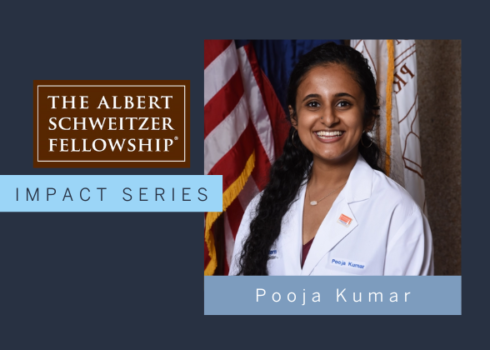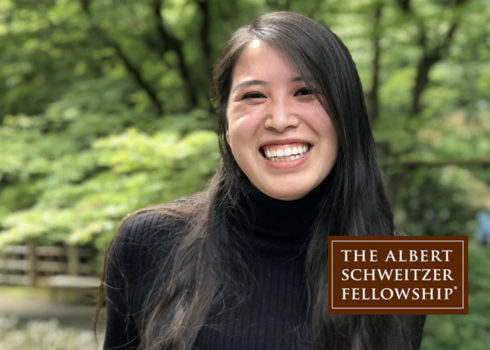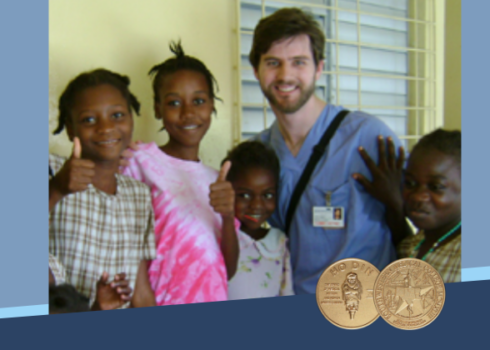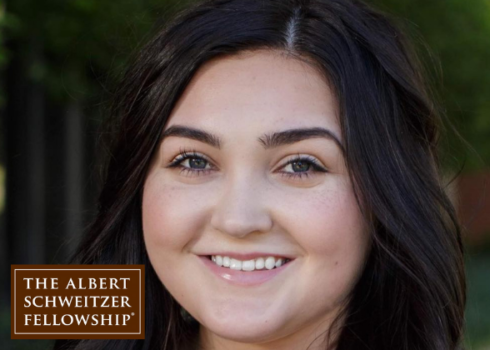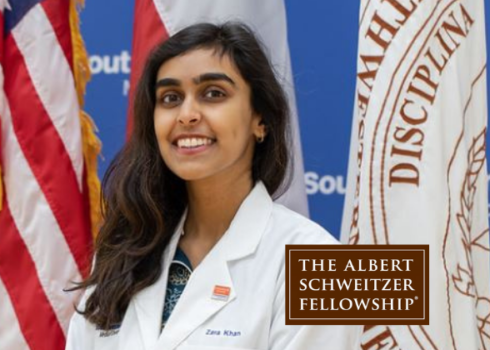Our collective mission to inspire a higher standard of public health has been fundamental to the advancement and prosperity of families in our region. 2022 Albert Schweitzer Fellow, Pooja Kumar, took that same mission to heart when she joined a project to provide support and resources to women experiencing homelessness.
In 2015, Southwestern Medical Foundation joined with the Dallas-Fort Worth Schweitzer Fellowship Program (ASF) to bring the innovative service and leadership program to medical and graduate students in the Dallas-Fort Worth area. The Fellowship aims to address local health disparities and the social determinants of health while developing future leaders. It was coined as a nod to the renowned physician-humanitarian and health care hero, Dr. Albert Schweitzer, whose legacy of community service continues today.
We had the opportunity to discuss the inspiring work of some of this year’s DFW Albert Schweitzer Fellows – including Pooja’s. These fellows continue to inspire us in the spirit of Dr. Albert Schweitzer by investing in our region’s health.
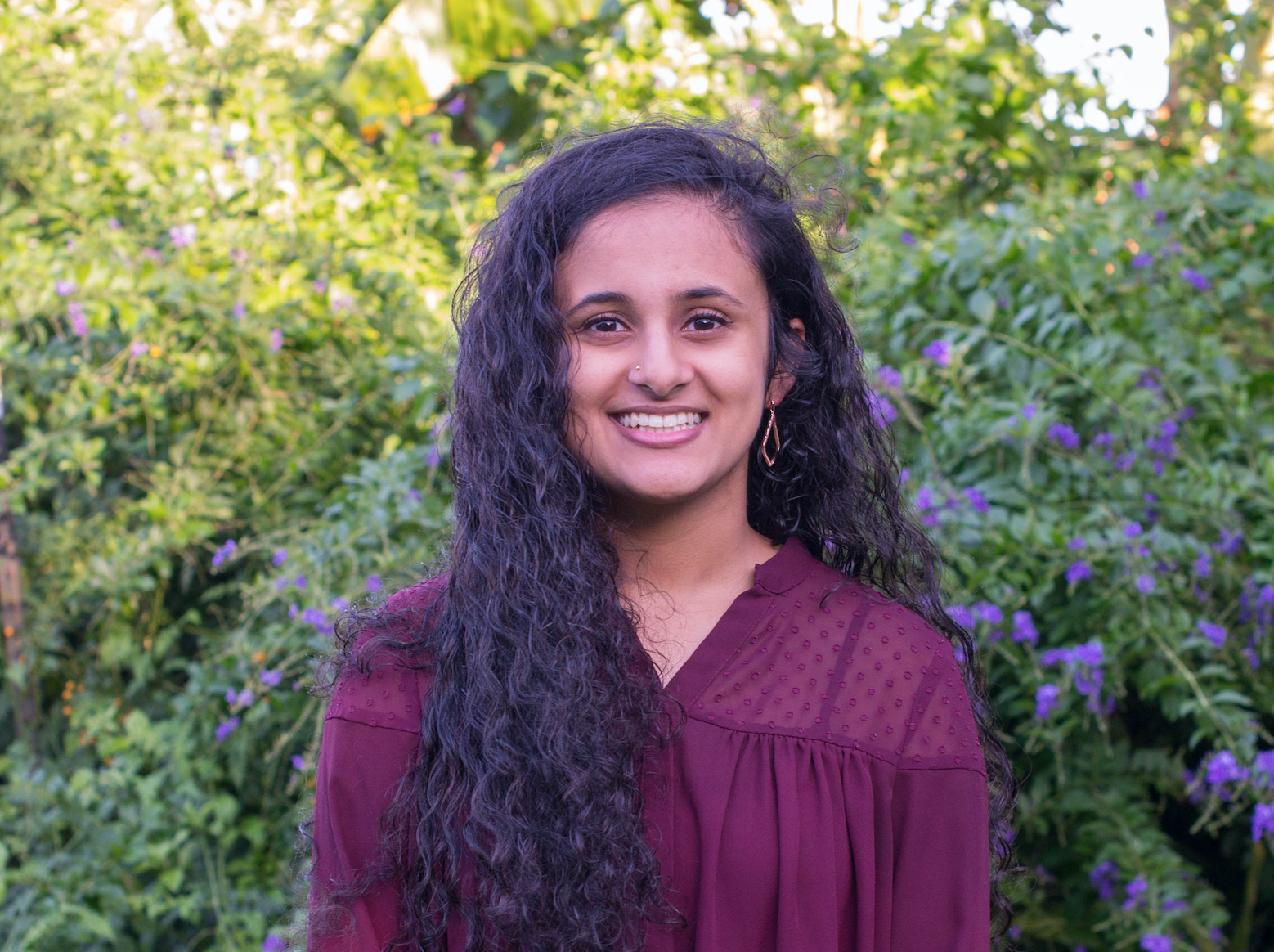
Removing Barriers to Health Education:
A Q&A with Schweitzer Fellow Pooja Kumar
Q: What is your background and what has led up to this moment in your career?
A: Growing up, my parents always emphasized the importance of service and charity. It was rooted in our weekly schedule of activities, whether volunteering for the local food banks or helping make sandwiches for the shelters in Houston. Over time, my interest in community service directed me on a path toward exploring nonprofit work, specifically with a Houston-based autism awareness organization called Hope for Three. I learned firsthand from families about the financial, social, and educational impacts neurodevelopmental disorders can have on individuals and their loved ones. Hope for Three spurred my interest in the medical field and taught me how to advocate for those living with disabilities.
At some point along the way, I also discovered that my interest in medicine was inextricably linked to my desire to engage in community service projects. Through both, I can connect with the local community, get to know the people and their stories, and work with them to overcome various challenges.
…I discovered that my interest in medicine was inextricably linked to my desire to engage in community service projects. Through both, I can connect with the local community, get to know the people and their stories, and work with them to overcome various challenges.
Pooja Kumar
Knowing this, I started to explore service organizations in medical school, and I came across the Patient Navigator Program, a previous Schweitzer project that connected people experiencing homelessness to resources in health care, housing, transportation, mental health, and more. In this program, groups of medical students are paired with a client at one of the local Dallas shelters, and we work with them to help achieve multiple objectives by the end of a 15-week cycle.
In my time working with clients, one of the most important things I have learned is to be grateful for what I have and to maintain a positive outlook, especially during challenging times. I am amazed by how the Patient Navigator Program has grown in the past two years, and I hope to continue to make an impact on the organization and people involved with my Schweitzer project.
Q: What is the main goal of your project?
A: My project is focused on building and expanding the services of the Patient Navigator Program in partnership with the Center of Hope (COH) shelter in Dallas. Through this project, I hope to help decrease the burden that homelessness places on women aged 18+ by providing them with the support and resources to achieve their established Specific, Measurable, Achievable, Relevant, and Time-Bound (SMART) goals.
Our team will be working on expanding our services and support to other local organizations, such as the North Dallas Shared Ministries free student-run clinic. We will be working on empowering patients to feel more confident navigating the health care system and connecting them to resources within and outside of health care. Apart from that, we will begin a new professional development workshop series at COH that focuses on interview skills and resume building. Through this monthly program, we hope to provide the women at COH with adequate resources to succeed in the job application process.
Q: What does being an Albert Schweitzer Fellow mean to you?
A: The Albert Schweitzer Fellowship is an incredible program that gives students the unique opportunity to learn beyond the classroom by implementing tangible solutions to challenges the community is facing. It gives us hands-on experiences and allows us to learn more about ourselves as leaders and how we envision service fitting into our roles as future physicians. This fellowship gives me the opportunity to not only fuse my passions for medicine and service but also collaborate with amazing people and organizations that have been steadfast supporters of local reform.
The Schweitzer Fellowship is particularly unique because it allows us to look at people from a holistic perspective while factoring in their physical, mental, and social needs. Beyond that, it emphasizes the importance of sustainability, a quality that isn’t always considered with service projects of this scale.
The best part of this process is being able to navigate the ups and downs of this journey with other passionate and inspiring fellows in our cohort. I am honored to be able to work with them and learn from them, and I look forward to seeing the impact our projects have on the community!
The Schweitzer Fellowship is particularly unique because it allows us to look at people from a holistic perspective while factoring in their physical, mental, and social needs.
Pooja Kumar
Q: What role does philanthropy play in supporting research and innovation?
A: Philanthropic endowments and a culture of altruism are primary contributors to research and innovation in our society today. With adequate philanthropic backing, preliminary ideas are given the chance to fully blossom and come to life.
I’ve seen firsthand how philanthropy fosters sustainability and creativity. The Patient Navigator Program was initially started by Alison Liu at UT Southwestern and was able to grow and flourish over the past two years because of the philanthropic investment from the Albert Schweitzer Fellowship. Ultimately, what I’ve seen is that research and innovation have boundless potential when combined with philanthropic efforts.
With adequate philanthropic backing, preliminary ideas are given the chance to fully blossom and come to life.
Pooja Kumar
The Legacy of the Albert Schweitzer Fellowship
The philosophy that ASF champions aligns with the principles the Foundation has represented since its founding. Both ASF and the Foundation were established during World War II to develop leaders in service and inspire great citizenship through philanthropy. ASF was founded by Helene Bresslau Schweitzer and Albert Schweitzer in 1940. During the same time period, Southwestern Medical Foundation instituted the Ho Din Award.
Through the Ho Din Award, the highest honor bestowed on a graduating medical student from UT Southwestern, the Foundation has supported students who exemplify knowledge, understanding, and compassion. The Fellowship Program personifies these values, instilling a life-long philosophy of compassionate patient care, and paving the way for better health for all.
The Fellowship is open to students in eight local universities, including Baylor University, Southern Methodist University, Texas Christian University, Texas Woman’s University, University of Dallas, University of Texas at Arlington, University of Texas at Dallas, and UT Southwestern Medical Center.
